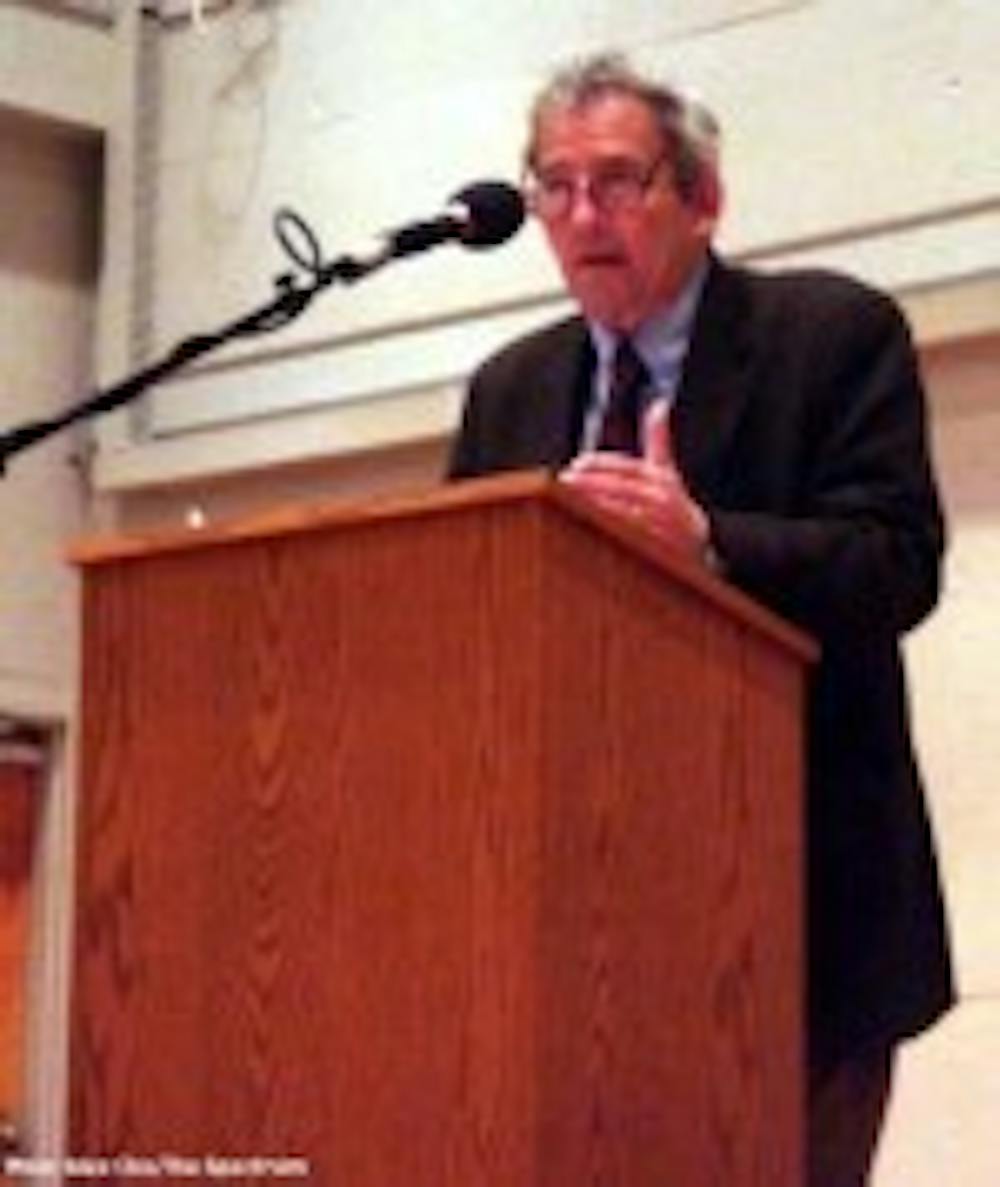Thousands of Florida residents face the aftermath of hurricanes Frances and Ivan as they pick through the wreckage that was once their homes.
News outlets scurry to cover what look like scenes from the end of the world. According to Ross Gelbspan, that is exactly what they are.
This violent weather, he said, is just the first sign of a much more terrifying problem, and it is only going to get worse. He warns that global warming is no longer a remote, theoretical risk, but a grave reality.
Gelbspan met with journalists over a breakfast sponsored by the UB Green office Tuesday morning. There, he discussed the implications surrounding global warming, which he outlined in his latest book "Boiling Point."
"The first manifestation is extreme weather events," he said.
In 2001, more than 2,000 scientists from over 100 countries reported imminent ramifications of planetary warming to the UN, Gelbspan stated.
"Brutal droughts, floods, and violent storms across the planet will intensify because emissions from humanity's burning of coal and oil is driving up temperatures much more rapidly than scientists had anticipated just six years earlier," Gelbspan stated of the report.
Though the Weather Channel shatters Nielsen ratings with coverage of the disasters, the media have largely kept mum on the warming trend that fuels them.
"The media in a sense got suckered," Gelbspan said.
Journalists, he said, are accustomed to reporting the opinions of others. In the tradition of objectivity, journalists have gone out of their way to publish opposing arguments. In the case of global warming, they have simply helped to spread disinformation.
"When it is a question of fact, I don't believe balance comes into play," he said. "There is no debate about the larger trends in global warming."
Gelbspan, who has a long and celebrated career as a journalist himself, admits he was one of those who originally got duped.
He wrote a piece about climate change and its link to infectious diseases for The Washington Post. After it ran, he received several letters from readers saying they did not agree the climate was changing.
They referred him to some "greenhouse skeptic" scientists, and he read some of their writings.
"I was persuaded that global warming was a nonevent. Emotionally, I felt very relieved not to have to deal with such a heavy issue," he stated in "Boiling Point."
He later discovered the public relations departments of the fossil fuel lobby pretending to be concerned citizens had written the letters. He learned later how the fossil fuel-funded "skeptic" scientists had manipulated data and deliberately misrepresented the situation.
"That made me quite angry - and not because I love trees," Gelbspan stated.
Gelbspan questioned fellow journalists as to why they were not reporting global climate change in association with the severe weather stories they were constantly publishing.
"They said, 'We did that once. The fossil fuel lobby was all over us. They threatened to withdraw all their gas and auto ads from the paper,'" he said.
As Gelbspan continued to research his story, one of thousands that has crossed his desk, he got increasingly upset.
"It made me angry because I had devoted a 31-year career to the belief that in a democracy we need honest information on which to base our decisions," he said. "What these few 'skeptic' scientists were doing was stealing our reality."
Since then, the Pulitzer Prize-winning Gelbspan has devoted his work to covering almost nothing other than global warming and its effects.
It has led to two books, 1997's "The Heat is On" and 2004's "Boiling Point."
"He found a story so compelling, it changed his life," said Walter Simpson, Director of the UB Green office.
UB Green also sponsored a lecture by Gelbspan at Allen Hall Tuesday night.
"Boiling Point" entails page after page of harrowing dangers the world is facing because of climate change, and the issues are not all environmental. Global warming has caused billions of dollars in property damage. It has forced insurance companies to drastically change their coverage policies. It has even become a threat to national security as resentment about American environmental policy builds around the world.
"There is huge anti-American sentiment. They're all cutting their emissions and we're not," he said. "Places with some of the worst air quality watch as 5 percent of the world's population produces 25 percent of its coal emissions. Our indifference is only going to lead to more attacks."
But what it has threatened the most, according to Gelbspan, is the fossil fuel industry.
Now the fossil fuel industry and the world's scientists are in a bare-knuckle battle. The industry is fighting for the survival of its companies, while the scientists are fighting for what they perceive as the survival of the world's civilization.
It is not light work, but Gelbspan said he is not the only one interested in fighting the battle.
"The heat wave that killed 30,000 people last year really transformed the scene in Europe. Crazy weather is freaking people out. People know something is wrong," he said.





